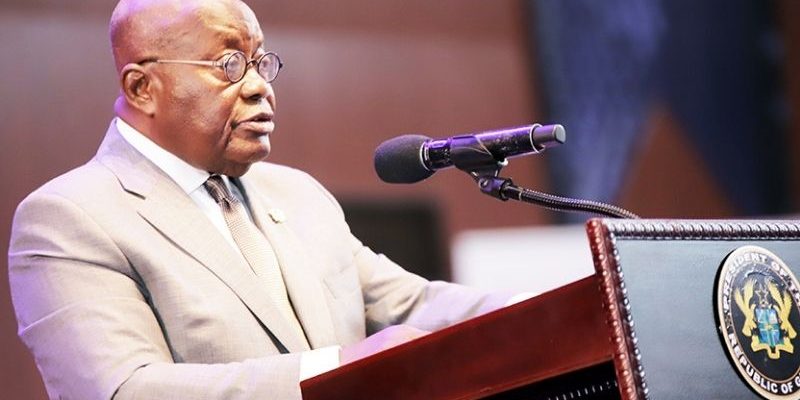The President, Nana Addo Dankwa Akufo-Addo, has lamented over the scarcity of fertilizer in Africa, saying the development could affect maize, soya and poultry productions in Ghana.
While stating that in 2020, Africa imported $4 billion worth of agricultural products from Russia, he also indicated that, the crisis in Ukraine has compromised the food security of Africa. He added that it has not only disrupted commodity imports, but also the unavailability of fertilizer for crops.
“Growing concerns of fertilizer shortages in most African countries, including Ghana, are worrying. Ghana’s maize and soya production could be affected and our poultry industry could suffer greater shocks,” he observed.
He expressed the concern yesterday at the 22nd Academy of African Business and Development (AABD) conference, currently ongoing at the University of Professional Studies Accra (UPSA).
Intra-Africa Trade
President Akufo-Addo was, however, not happy Africa spends huge amounts of money to import virtually everything.
According to him, Ghana imported 350 metric tons of chicken in 2021 and that the figure is expected to jump to 400 metric tons this year. South Africa also imports almost $1 billion worth of wheat, rice, frozen meat products and corn per year.
Ironically, as he put it, none of these imports to Ghana and South Africa are from any African country. He believed these are the reasons intra-African trade is so low.
However, he sees the current derailment in the global commodities market, supply chains and logistics as a clarion call for Africa to rise up.
He also sees the African Continental Free Trade Area (AfCFTA), which links 54 markets covering 1.2 billion people with a combined GDP of three trillion United States dollars into a single market, as a powerful lever for the transformation of Africa’s economies and food systems, and asked Africa to take advantage.
“What stops African countries like Ghana from producing and consuming its own tropical oils, like palm oil and coconut oil, and trading them with Morocco which produces wheat. Africa can and should be self-sufficient,” he remarked.
Reduce Dependency
President Akufo-Addo called on the conference, made up African researchers and policy makers, to scale up policies that would reduce the continent’s dependence on foreign aid.
He asked them to pursue a path of self-respect and take actionable steps to create the enabling environment to build prosperity and development to make Africa rich and resilient.
Regardless of the numerous backslides, President Akufo-Addo said it was not too late for the continent to correct the wrongs.
Expectations from Confab
The President thus urged the conference to ensure its deliberations would help Africa’s quest to get to the point beyond aid. The proceedings of the meeting, he implored, should contain actionable proposals for consideration.
He also urged the conference to focus attention on the IMF’s unprecedented Special Drawing Rights reallocation for which Africa shared some 30 billion dollars, much less than 100 billion dollars promised in the 2019 Paris Summit, intended to provide additional financial resources to address the vast in surging inequities the pandemic has revealed.
President Akufo-Addo asked the Conference to articulate policies that would help strengthen African financial institutions like the African Development Bank, AfriExim Bank and the Africa Finance Corporation to enable them take over greater responsibility for the financing of Africa’s development.
They should advocate for debt cancellation for African countries to provide a sound foundation for the continent’s future progress.
About the Conference
The six-day conference is being held under the theme: “Sustainable Development Beyond Aid: The Focus for Africa,” and is being attended by researchers, business practitioners, consultants, community leaders and policy makers.
The AABD annual conferences aim at facilitating multidisciplinary research by stimulating collaborations between Africa based researchers and professionals and their counterparts around the world, by broadening and deepening global understanding of various issues relevant to Africa’s business and development, as well as advancing solutions to some of her challenges.
Source: Maxwell Ofori || The Chronicle

